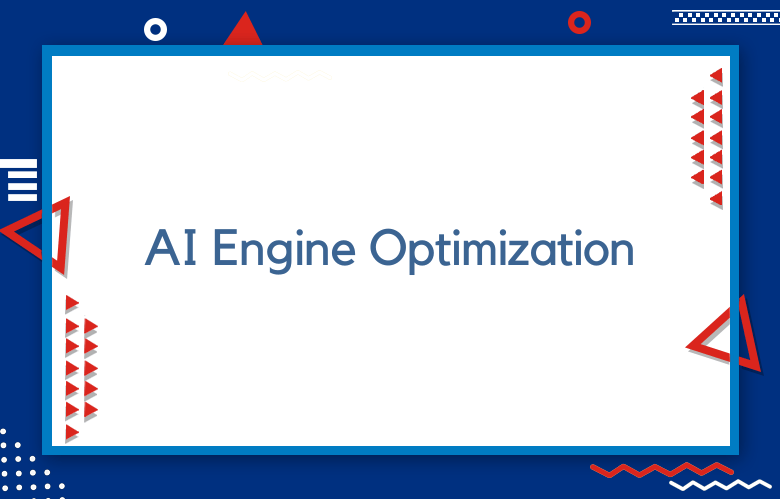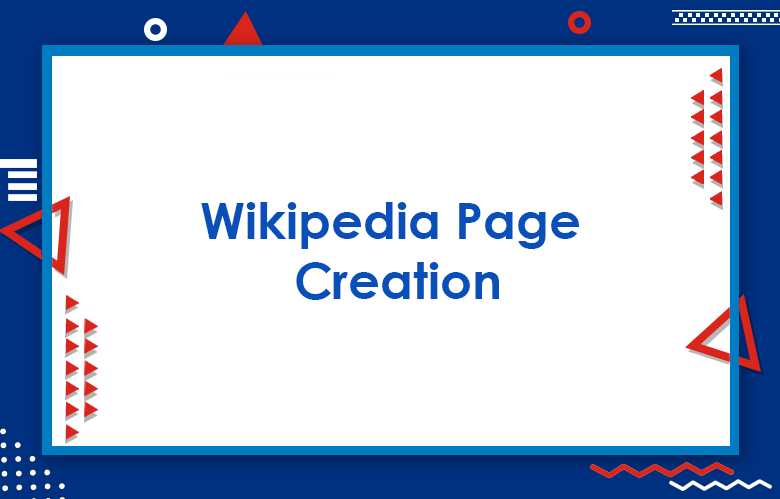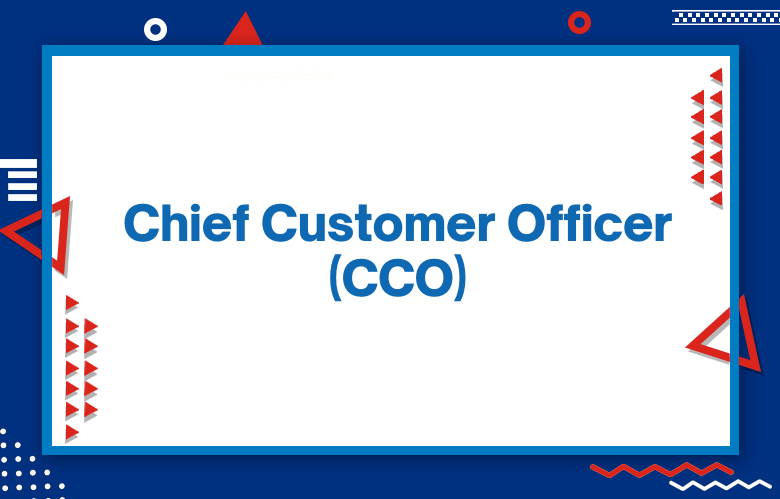AI Engine Optimization: The Future That Disrupts SEO

Artificial Intelligence (AI) has turned the online world upside down. Its potential is limitless, and we have yet to realize the full extent of its capabilities. One of the areas that AI is rapidly changing is search engine optimization (SEO). With AI, SEO is no longer just about keyword optimization or link building.
Website owners must incorporate machine learning algorithms into their SEO strategies to stay ahead. We’ll discuss AI engine optimization, its impact on the future of SEO, and how it can help you better optimize your website for search engines.
In this era of technological advancement, Artificial Intelligence (AI) has become an integral part of our everyday lives, and businesses are investing in its automation.
As a result, businesses have been trying to integrate AI into their marketing techniques, and Search Engine Optimization (SEO) is no exception.
AI Engine Optimization (AEO) is an emerging trend changing the SEO and overall marketing game. I will go in-depth on AI Engine Optimization, how it disrupts SEO, and how it impacts the future of digital marketing.
What is AI Engine Optimization?
AI engine optimization is a complex and highly specialized process that fine-tunes a machine learning system’s algorithms, models, and parameters to achieve optimal performance and accuracy.
AI engine optimization is a critical step in developing and deploying AI-based applications, as it determines how efficiently an AI system can process and analyze data and how effectively it can make decisions and predictions based on that data.
AI engine optimization typically involves techniques and approaches, such as model selection and tuning, hyperparameter optimization, regularization, and feature engineering.
These techniques aim to optimize an AI system’s performance and generalization ability by reducing overfitting, improving accuracy, and minimizing errors and biases.
Optimizing AI Engines for Maximum Performance
Artificial intelligence (AI) is one of the most rapidly growing technologies in the world. The ability of AI to learn, improve and make decisions based on data and algorithms provides enormous potential for businesses across a range of industries. However, the effectiveness of AI algorithms is wholly reliant on the performance of the engines running them.
With optimal engine performance, processing data and algorithms can be smooth and efficient, hindering the entire AI system.
To maximize AI engine performance, focusing on several key areas is essential. CPU, RAM, GPU, and storage capacity are engine performance’s primary aspects.
Investment in state-of-the-art hardware and regular maintenance is necessary to help the engines operate at their peak level. Updating and refining the algorithms is vital to minimize the computational complexity and provide the most optimized performance for specific tasks.
Mastering AI Engine Optimization for Success
Artificial Intelligence (AI) is revolutionizing the world as we know it, and with this comes the need for optimization of AI engines.
The optimization of AI engines involves improving the algorithms and processes used to enhance the performance of AI systems. Mastering AI engine optimization is essential for success in various industries, including healthcare, finance, and automotive.
The optimization of AI engines involves several elements, including data preparation, training, and model selection. Successful optimization depends on the quality and quantity of data used to train the AI models.
Data pre-processing techniques such as cleaning, normalization, and feature extraction play a vital role in preparing the data for AI training. Once the data is ready, AI algorithms such as neural networks, decision trees, and regression models develop models that recognize patterns and make predictions.
Revolutionizing SEO: The Power of AI Engine Optimization
The search engine optimization (SEO) field has evolved, becoming more sophisticated and data-driven.
Although still relevant, traditional keyword research and link-building methods are needed to achieve optimal rankings on search engine result pages (SERPs).
With the ever-growing competition in the online market, website owners must find innovative ways to enhance their SEO strategies and stand out among their competitors. This is where AI engine optimization comes in.
AI engine optimization, or AI SEO, is the cutting-edge approach to SEO that harnesses the power of artificial intelligence (AI) to analyze large volumes of data and provide comprehensive insights into website performance.
This revolutionary technology employs machine learning algorithms that automatically identify patterns, trends, and anomalies in website behavior and user interactions.
AI SEO can optimize website content, structure, and keywords by analyzing user data and metrics for maximum visibility and engagement.
Transforming SEO: Embrace the Era of AI Engine Optimization
Optimizing search engine rankings has become a critical aspect of online marketing in today’s digital era. As search engines become more sophisticated and users’ search queries become more complex, more traditional SEO strategies are needed to keep up with the changing times.
Companies, therefore, must embrace the era of AI Engine Optimization, which is transforming the landscape of search engine optimization.
AI Engine Optimization (AEO) incorporates machine learning and natural language processing to enhance traditional SEO tactics and provide more targeted search results for users.
AEO adapts to the user’s search intent by analyzing their search history, preferences, and demographics. It then provides personalized and relevant search results most likely to meet the user’s requirements.
AEO also considers voice search queries, which are becoming increasingly popular with the rise of virtual assistants like Amazon Alexa and Google Home.
Unlocking the Potential of AI Engine Optimization in SEO
Artificial intelligence (AI) technologies are becoming increasingly significant across various industries, including search engine optimization (SEO). The use of AI in SEO has the potential to revolutionize how optimization efforts are conducted and managed.
AI engine optimization in SEO involves leveraging the power of machine learning algorithms to analyze and understand complex data sets related to search engine rankings, user behavior, and website performance metrics.
By thoroughly analyzing and interpreting this data, AI can provide SEO experts with deep insights and actionable recommendations to help improve website rankings and overall visibility.
One of the main advantages of AI engine optimization in SEO is its ability to work around the clock, continuously analyzing and optimizing websites for search engines.
AI can handle the laborious task of identifying trends, patterns, and statistics from vast amounts of data, allowing SEO experts to focus on creating more effective strategies for their clients.
The Impact of Personal AI on SEO and E-commerce
Personal AI, or artificial intelligence designed to interact with individuals on a personal level, is revolutionizing how people access information and make purchasing decisions online.
With the rise of virtual assistants such as Siri, Google Assistant, and Amazon Alexa, individuals increasingly rely on AI technology to help them navigate the vast array of options available in the digital marketplace.
One area where personal AI has significantly impacted is search engine optimization (SEO). As more people use virtual assistants to conduct voice searches, traditional SEO strategies prioritizing specific keywords and phrases are becoming less effective.
Instead, companies are now focused on optimizing their content for natural language searches, which tend to be longer and more conversational.
Adapting SEO Strategies for the Age of AI Agents
In today’s technological landscape, search engines have evolved significantly with the rapid adoption of artificial intelligence into everyday life. The emergence of AI agents such as Siri, Alexa, and Google Home has transformed how people interact with search engines.
These AI agents can understand complex user queries and provide fast and accurate results, making it easier to access information.
As a result of this shift, businesses must adapt their SEO strategies to cater to the ever-evolving nature of AI agents.
It is now imperative for businesses to optimize their content and websites for AI-based search engines by incorporating natural language and long-tail keywords to increase the relevancy of their content.
Businesses must pay attention to structured data and schema markup to enhance AI agents’ recognition of their website content.
This is because AI agents are designed to display results that align with user intent, and structured data can provide the clarity needed to understand user queries better and provide more relevant results.
Disruption Ahead: Moving Beyond Traditional Search Engine Optimization
As online behaviors and search algorithms evolve, the traditional search engine optimization (SEO) approach is being disrupted. Gone are the days of merely optimizing title tags, meta descriptions, and sprinkling a few keywords. Today’s SEO requires a more holistic and proactive approach to stay ahead.
One significant disruption is the shift towards voice search and conversational queries. According to Google, 20% of searches made on mobile devices are voice searches, and this trend is steadily growing.
Businesses should optimize their content for long-tail conversational queries rather than only focusing on head keywords.
Another disruption comes from Google’s algorithm updates, which aim to deliver the best possible user experience.
As Google’s AI algorithms become more sophisticated, user engagement and satisfaction metrics such as click-through rates, dwell time, and bounce rates are becoming increasingly critical ranking factors. This means businesses should go beyond technical SEO and create content that engages and satisfies their audience.
How AI Agents Will Reshape Online Advertising and SEO
Artificial Intelligence (AI) is revolutionizing various industries, and online advertising is no exception. With advancements in AI technology, there has been a significant shift in how online advertising is approached.
Integrating AI-based agents into online advertising has completely transformed the industry, allowing advertisers to reach their target audience quickly and more efficiently.
One of the significant advantages of using AI agents in online advertising is that they can analyze vast amounts of data and identify previously unnoticed patterns. This allows marketers to understand their potential customers better and create targeted campaigns that are more likely to convert.
The Future of SEO: Optimizing for AI Agents and Beyond
In a rapidly changing technological landscape, the future of SEO lies in optimizing for AI agents. AI agents, such as virtual assistants like Siri and Alexa, are quickly becoming the go-to source for information and recommendations.
It is estimated that voice searches will account for over half of all searches by 2022. This shift in search behavior requires a fundamental change in SEO strategy.
To optimize for AI agents, websites must provide concise and precise answers to questions.
This means that content should be structured in a way that is easily digestible for virtual assistants, utilizing headings and bullet points where appropriate. Schema markup can provide context and structure to content, making it easier for AI agents to understand and categorize.
The Rise of AI and the Shift from Search Engines to AI Agents
The rise of artificial intelligence (AI) is reshaping the way consumers interact with technology. One of the most significant changes has been the shift from traditional search engines to AI agents. This shift is due to the ability of AI agents to provide more personalized and efficient experiences for users.
Search engines have been the go-to solution for finding information online for over two decades. They crawl the internet and index web pages based on keywords and other factors.
This process has proven effective for finding relevant information when users know exactly what they want. However, it falls short when users have more complex needs or are unsure.
AI agents and virtual assistants are a step forward from search engines. These agents use natural language processing (NLP) to understand users’ intent and provide relevant information or perform tasks through conversational interactions. This level of personalization allows users to access information and complete tasks more efficiently.
The Role of LLMs in Training AI Agents for SEO Optimization
LLMs, or language models, have become increasingly essential in artificial intelligence and machine learning, particularly in search engine optimization (SEO).
These models have proven instrumental in training AI agents to understand the nuances and complexities of language, enabling them to analyze website content effectively and make informed decisions about improving search engine rankings.
One of the primary challenges facing AI in SEO optimization is deciphering the intent behind user queries.
LLMs are particularly adept at addressing this issue, as they can analyze patterns and context to determine the meaning of a query and provide more relevant search results.
This is especially crucial in today’s digital landscape, where users increasingly rely on voice commands or natural language queries to search for information or products.
Overcoming the Challenges of Data Collection for AI Agents
Develop a Clear Strategy
Before collecting data for AI agents, it is essential to develop a clear strategy that outlines the goals and objectives of the project. This strategy should include a timeline, budget, and resources needed to complete the project.
The strategy should include a plan for how the data will be collected and analyzed. A well-defined strategy can help ensure the project stays on track and is completed on time.
Identify Relevant Data Sources
Once a strategy has been developed, it’s essential to identify relevant data sources that can be used to collect data for AI agents. These sources include public databases, surveys, interviews, or other data collection methods. Considering the collected data’s quality and relevance to the project’s goals is essential.
Establish Data Quality Standards
For AI agents to make accurate decisions based on collected data, it is essential to establish strict data quality standards before beginning any data collection process.
These standards should outline what types of data are acceptable and which are not, as well as any specific requirements, such as accuracy or completeness levels, that must be met for the collected data to be considered valid and valuable for AI agents.
Utilize Automation Tools
Data collection can be time-consuming and tedious manually; however, various automation tools can help streamline this process.
Automation tools like web crawlers and natural language processing algorithms can help speed up data collection by automatically gathering relevant information from online sources or analyzing text documents. Utilizing these types of tools can help save time while still ensuring high-quality results are achieved quickly and efficiently.
Utilize Cloud Computing
Cloud computing services can also simplify collecting large amounts of data for AI agents by providing access to powerful computing resources without investing in expensive hardware or software solutions upfront.
Cloud computing services provide access to scalability options so that additional resources can easily be added if necessary during periods when large amounts of data need to be processed quickly or when extra storage capacity is required due to an increase in demand from users or customers accessing stored information remotely via mobile devices or other connected devices such as IoT sensors or cameras.
Ensure Security & Privacy Compliance
When collecting personal information from individuals or organizations, it is essential to ensure security protocols are followed to protect sensitive data from unauthorized access or misuse by malicious actors online or within internal networks/systems used by organizations/businesses storing customer/user records containing personal details such as names, addresses, phone numbers etcetera.
Privacy compliance regulations must also be adhered to when collecting personal information from individuals/organizations so as not to breach any laws governing how personal information may legally be used, stored, shared, etcetera.
Test & Validate Results
Once all relevant datasets have been collected, it’s essential they then undergo rigorous testing & validation processes before them being used by AI agents.
This ensures accuracy & reliability levels remain consistently high across all datasets being utilized by AI systems. Testing & validation processes involve running multiple tests against each dataset to determine whether any erroneous values exist, which could lead to inaccurate results being produced by AI systems.
Monitor Performance Metrics
Once all datasets have been tested & validated successfully, performance metrics must be monitored closely to ensure accuracy levels remain consistent across all datasets used by AI systems.
This involves regularly tracking key performance indicators (KPIs) such as error rates, latency times, etcetera, to detect any potential issues with datasets that could lead to inaccurate results being produced over time due to changes occurring within underlying datasets.
Embracing AI Engine Optimization as a New Marketing Imperative
As Artificial Intelligence (AI) continues to evolve, it is increasingly utilized in the marketing industry to optimize marketing strategies and ultimately drive better results. AI engine optimization, therefore, has become a new marketing imperative.
Integrating AI into marketing creates significant business advantages and drives better customer engagement, conversion rates, and revenue growth.
One of the critical advantages of AI engine optimization is the ability to analyze vast amounts of customer data quickly and efficiently.
This allows marketers to understand better how their customers interact with their brand, enabling them to develop personalized marketing campaigns and product offerings that resonate with their target audience.
This personalized marketing approach has increased customer engagement and created a more positive brand experience, resulting in higher conversion rates and customer loyalty.
Leading Brands and the Race to Develop Branded AI Agents
With the growing popularity of Artificial Intelligence (AI) agents in our daily lives, companies are now racing to develop branded versions of these agents to provide personalized and tailored experiences to customers.
These branded AI agents utilize machine learning algorithms and natural language processing (NLP) to understand and analyze customer behavior, preferences, and habits to provide a unique and personalized experience.
Leading brands such as Amazon, Google, Samsung, and Apple are investing heavily in developing their AI agent products. Amazon’s Alexa is now the dominant AI agent in the market, and Google’s Assistant is just a little behind.
Samsung has also launched its AI agent, Bixby, integrated into their Galaxy smartphones and other devices. Meanwhile, Apple’s Siri remains a strong market contender, despite stiff competition from other brands.
Transitioning from Search Engines to AI Agents
As the field of artificial intelligence (AI) continues to advance, there is a growing movement toward transitioning from traditional search engines to more sophisticated AI-based agents.
While search engines have been instrumental in helping us find information on the web, they need to improve their ability to understand the nuances of human language and context.
On the other hand, AI agents are designed to be much more intuitive and flexible, capable of understanding natural language and engaging in conversational interactions with users.
They use machine learning algorithms to learn from user interactions and improve their performance over time, making them much more potent than traditional search engines.
One significant advantage of AI agents is their ability to integrate information from multiple sources and present it in an easily digestible format. This integration allows for a more comprehensive understanding of a given topic and the ability to perform more complex searches and analyses.
The Promise of Personal AI and Its Impact on SEO
The advent of personal AI has been nothing short of revolutionary. As we increasingly rely on technology to make our lives more efficient, AI plays an ever-more important role in helping us manage the massive amount of information we are bombarded with daily. The promise of personal AI is no less significant and has already made an enormous impact on the SEO industry.
First and foremost, personal AI has enabled unprecedented levels of personalization in search. By analyzing user behavior and preferences, personal AI can deliver search results tailored specifically to each user.
This means businesses must pay closer attention to their target audience and customer demographics to get the best results from their SEO strategies.
Adapting to the Proactive Nature of AI Engine Optimization
The ever-developing world of technology and artificial intelligence has brought about a proactive nature in optimizing AI engines.
With this new development, businesses must adapt and continuously improve their AI engines to maximize their benefits. This shift toward a more proactive approach to optimization has resulted in AI engines that can constantly learn and adapt to changing conditions, ensuring they remain effective and efficient.
AI engines now use various techniques to monitor and analyze their performance to achieve this optimization level, including machine learning and deep learning algorithms.
These algorithms enable AI engines to detect patterns and anomalies in their performance data, allowing them to identify areas for improvement and adjust accordingly.
Exploring the Role of Large Language Models (LLMs) in AEO
Large Language Models (LLMs) have gained immense popularity in recent years thanks to their remarkable ability to generate human-like text.
LLMs, such as GPT-3, have revolutionized the field of natural language processing, making significant contributions to various applications, including chatbots, machine translation, and email automation.
However, the potential of LLMs extends beyond these applications, with growing interest in exploring how they can enhance the effectiveness of SEO and AEO strategies. AEO, or Answer Engine Optimization, involves optimizing content for search engines to provide concise and relevant answers to search queries.
LLMs can improve AEO by providing better understanding and meaning to search queries, allowing website owners to provide high-quality content more aligned with users’ intent.
LLMs can analyze search queries better and provide more relevant answers, as they understand the semantics behind the question and can generate better responses.
Conclusion:
The impact of AI on SEO cannot be overstated. It can change the SEO landscape and how website owners approach SEO optimization. Website owners must embrace AI engine optimization to remain competitive and relevant in the ever-evolving world of SEO.
As AI optimization grows and improves, we must also consider the risks and ethical implications of relying too heavily on this technology. However, in the meantime, it is clear that AI will continue to disrupt SEO in exciting and unforeseen ways.
AI Engine Optimization is a game-changer in digital marketing. With AI’s ability to process large amounts of data in real time and provide personalized content, businesses have everything they need to stay ahead of their competitors.
The emergence of AI chatbots has also revolutionized customer engagement, and the statistics support its effectiveness. Undoubtedly, AI is the future of digital marketing, and businesses that want to succeed should consider investing in AI Engine Optimization.
Call: +91 9848321284
Email: [email protected]



